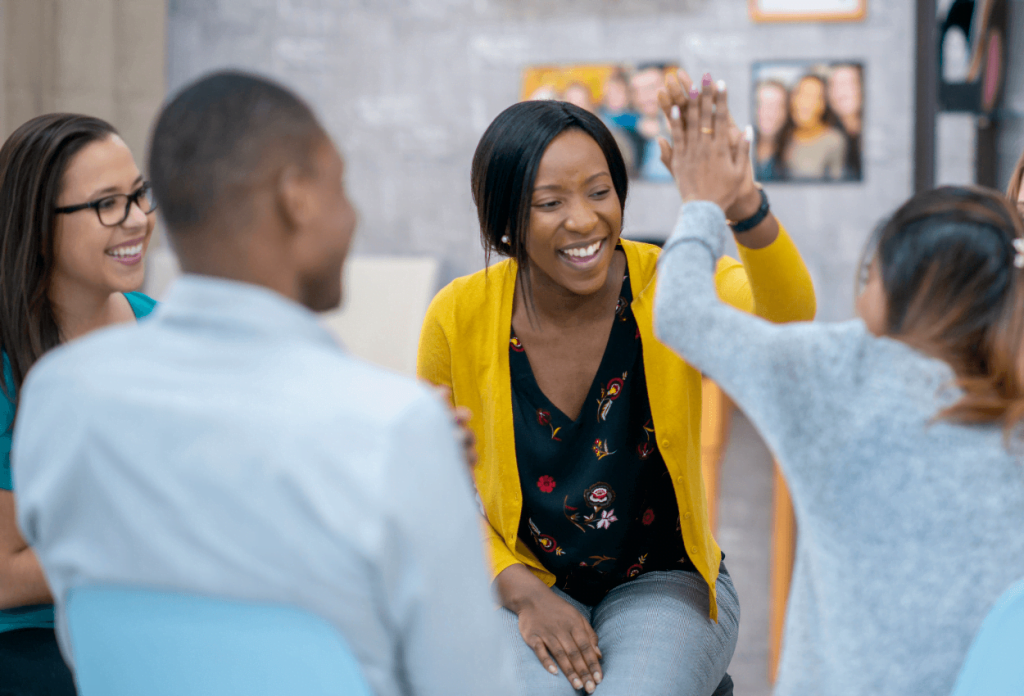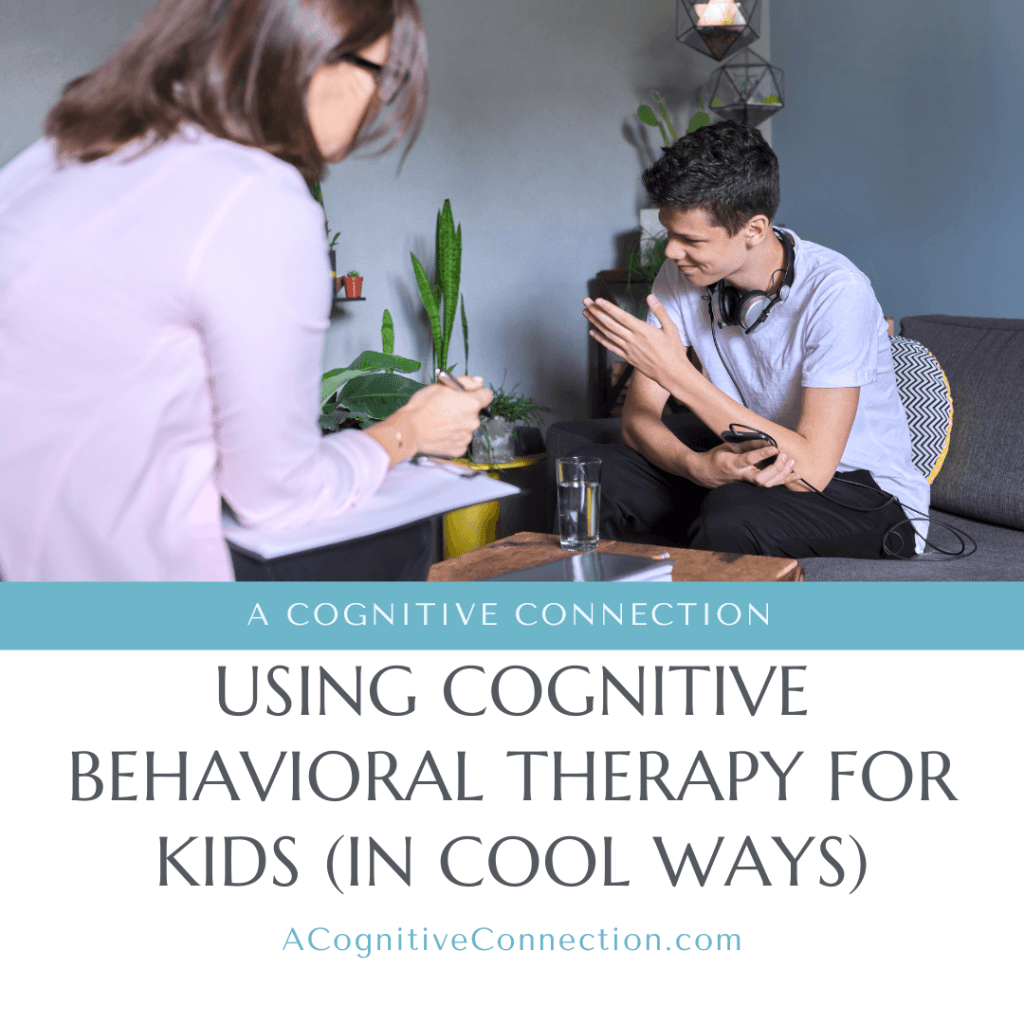When your child struggles with emotional problems from a young age, it’s easy to feel helpless and confused. You give yourself to your kid entirely, and watching them struggle with emotional balance and control is heartbreaking and something no parent should ever experience.
Thankfully, our team at A Cognitive Connection can help you get your child back on the right path through cognitive behavioral therapy (CBD). Give your child the helping hand they need to fight back against emotional and behavioral issues utilizing this technique.
We’ll walk you through every step of this process, helping you understand your child’s emotional problems while explaining the tenets of CBT. Our team of therapists provides a caring and welcoming environment that will make this process easier for both of you. Read on to learn more about this powerful technique and how you can help your little one bounce back.

What is Cognitive Behavioral Therapy?
Cognitive behavioral therapy is a popular psychological treatment that can help with a myriad of issues. It focuses on discovering the root causes of behavioral issues as diverse as anxiety, depression, drug abuse, eating problems, and even marital disorders. Three core principles are centered in every CBT session and approach. It states that psychological problems:
- Include, at least partially, negative or harmful patterns of thinking
- Feature learned patterns of unhelpful before that can be changed
- This could be fixed using better coping techniques for their symptoms
During the CBT process, you’ll learn how to recognize distorted patterns of thinking, reevaluate them based on reality, better understand other people’s motivations and behaviors, boost your problem-solving skills, and learn more confidence in yourself. Note that child-based CBT is a little different and may include even more intensive therapies to help them recover.
The CBT Process for Children: Your Insightful Guide
The cognitive behavioral therapy process for children varies slightly from adult-based treatments. The biggest difference is parental involvement. You’ll be there every step of the way to provide your child with support and comfort. Furthermore, you’ll learn CBT tips and techniques to streamline your child’s recovery and minimize potential complications.
In a real way, you’re the hero of this treatment process! Yes, we’ll help teach your child better coping techniques. But you’re the one who’ll take them outside of our office and implement them in your little one’s daily lives. Without you, this process cannot succeed! Let’s walk through the steps you can anticipate during this critical (potentially life-changing) therapy.
Behavioral Assessments: An Important First Step
During behavioral assessments, our team will watch your child and observe how they react to certain behaviors. We will also talk with them to learn more about their thought patterns and why they do things. The goal is to create a comprehensive understanding of their actions that can guide them through therapy and successful recovery with us.
Furthermore, we will perform various cognitive and educational evaluations to better understand your child’s emotional and mental health. Don’t worry—you’ll be there alongside us to learn from this process and help us through it together. We’ll need your help: tell us more about your child’s behaviors, and we can center CBT on these unique personal elements.

Counseling and Consulting: The Next Step to Recovery
Behavioral counseling is an important part of your child’s cognitive behavioral therapy. Though we can provide counseling in individual and group settings, we prefer working with you and your child in a more intimate and friendly environment. We can then talk with you and your child about successful adaptive behaviors and self-care methods to minimize emotional issues.
Consultation is similar in approach but varies in scope. It includes creating a behavioral support plan that improves a child’s social and emotional skills. For example, we might work with you and your child to improve their reactions to stressors and help your child master techniques for managing anxiety. You, too, can take away many life lessons from this process.
Cognitive Brain Training: High-Tech Behavior Solutions
Though CBT is primarily talk therapy, many higher-tech solutions may help your little one recover. For example, we utilize cognitive brain training techniques to rebuild neural networks and improve your child’s emotional performance. Even 10 minutes of mental exercise daily can help your child recover: we’ll make a schedule together to focus on their treatment.
Another tool we use is V.I.B.E.S., or Vibrational Individualized Body Enhancement System. Created by Bioharmonic Technologies, this treatment tool uses sound, frequency, vibrations, and energy to help boost the nervous system. Typically, we use this technique on children who need more specialized help, i.e., for those who don’t react well to traditional CBT methods.
Lastly, we utilize Mind’s Eye, a system from Theta Technologies designed to use light and sound to ease your mind and create a better sense of relaxation. The goal of this process in CBT is to calm your child’s anxieties and make it easier to discuss them. This process can make it easier for them to accept various therapeutic suggestions to stay healthy.
Your Role in CBT: Helping Your Child Stay Focused
Hands-on cognitive behavioral therapy helps your child cope with life more effectively and teaches you essential therapeutic tools. In essence, you’re the key to making this whole process thrive. We’ll teach you how to recognize behavioral concerns in your child and redirect them with important techniques like meditation, mindfulness, and other essential skills.
Multiple studies highlight the critical nature of parental involvement in CBT recovery, including providing day-to-day support for your little one. Our therapists will build the structure for your child’s recovery for you. We’ll even teach you coping methods that can calm your anxiety and make it easier to handle your child’s therapy; together, we can help your child thrive!

Using Cognitive Behavior Therapy for Your Little One’s Emotional Health
Emotional health support is a lifelong process, but teaching your little ones the recovery techniques they need can streamline this process and give them the headstart they deserve. At A Cognitive Connection, we will provide the hands-on support that your child requires by teaching them essential coping techniques utilizing CBT. Take your child’s emotional health to the next level by contacting our team and setting up your first CBT session.



